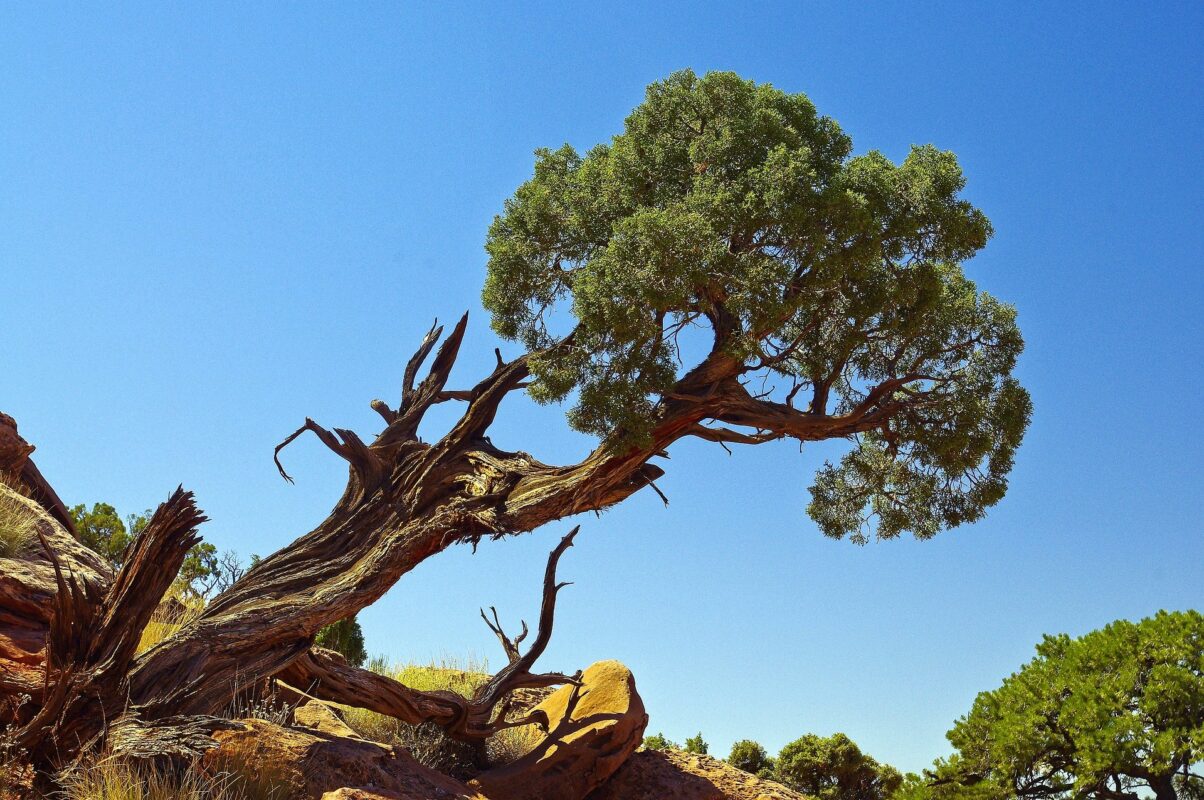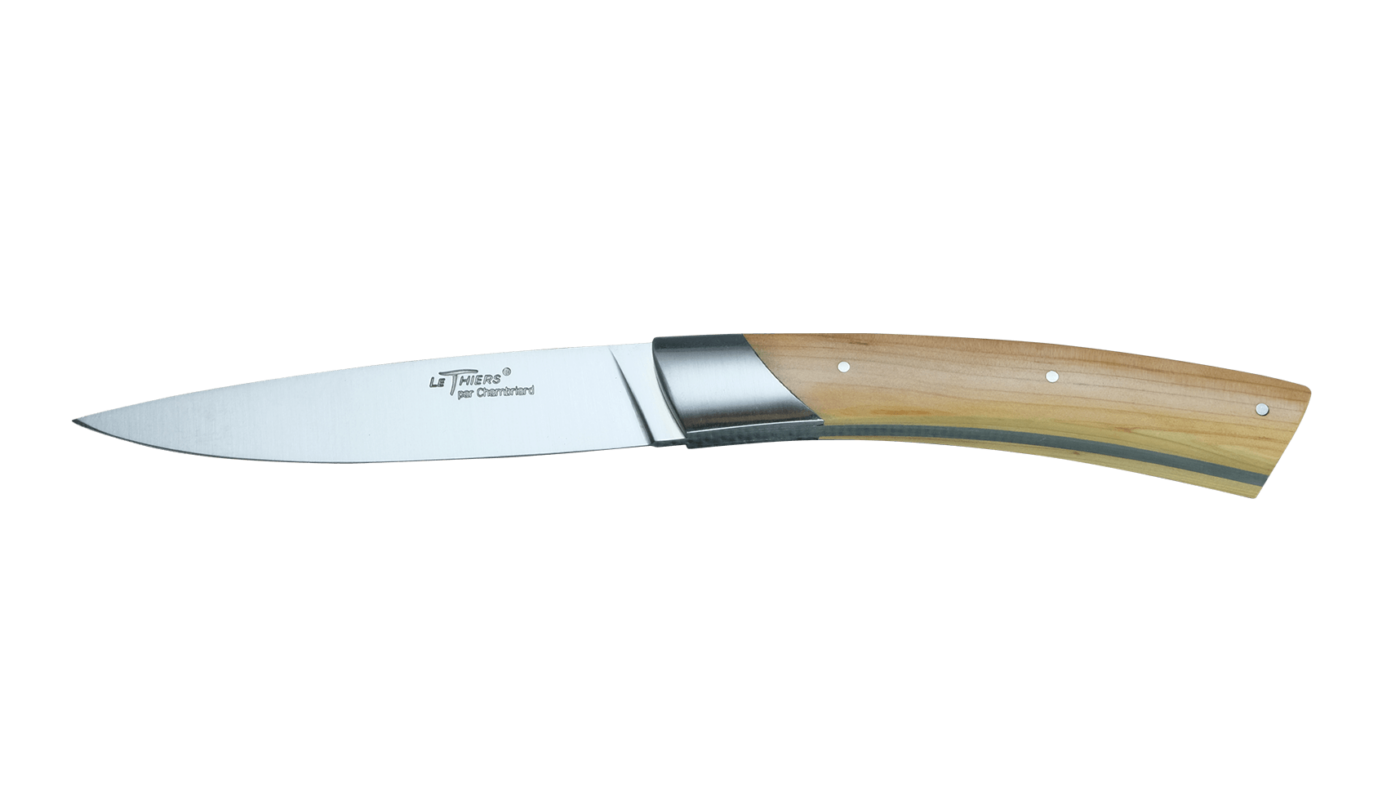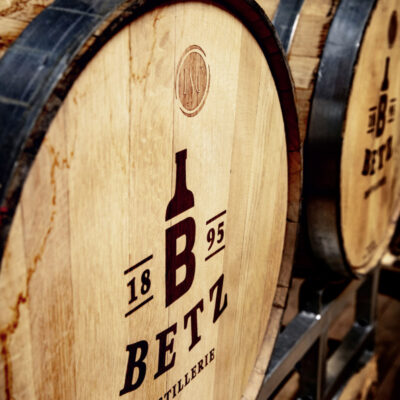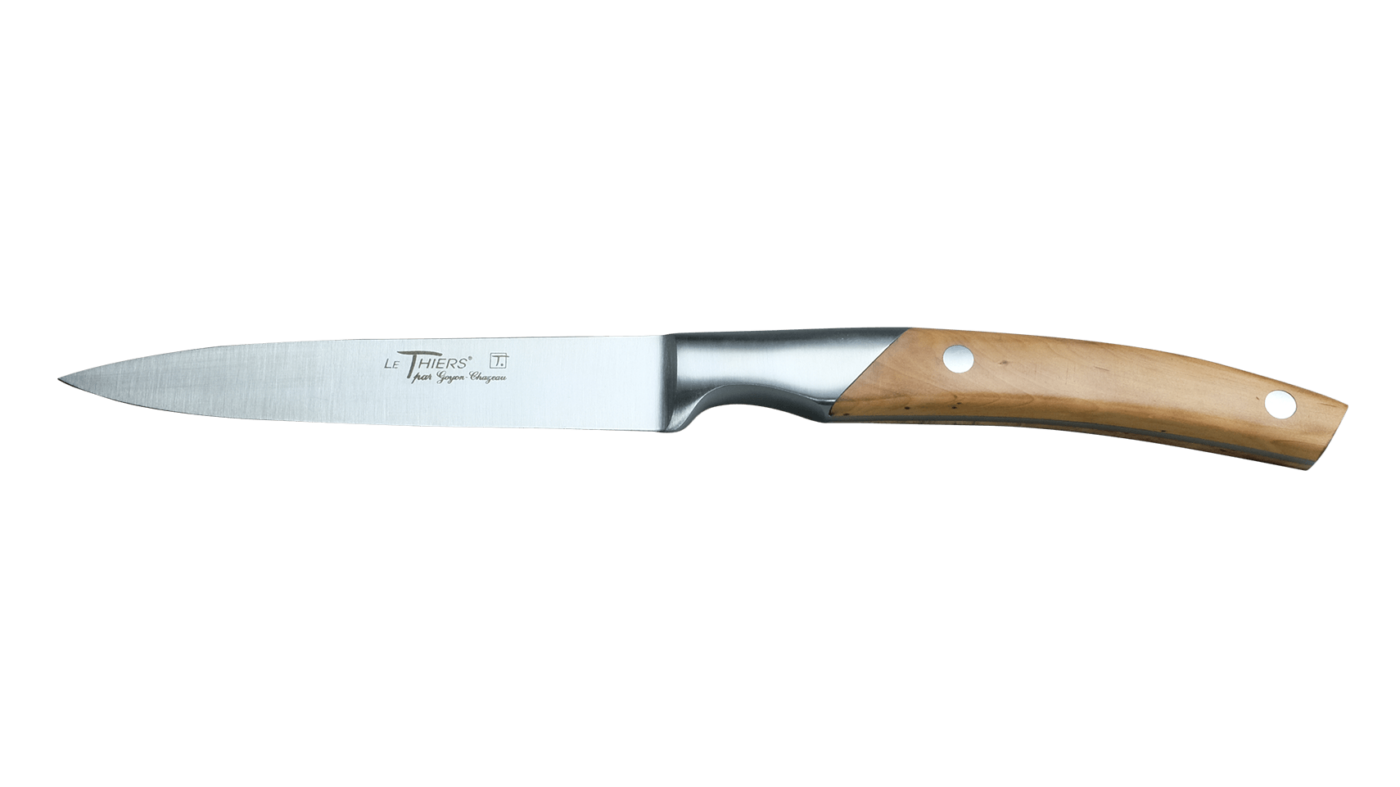Juniper wood is ideal for kitchen knives because of its beauty, color and moisture resistance.
Juniper handles add beauty and fragrance to any kitchen.
Juniperus, as it is called in Latin, is a medium-sized tree or just a creeping shrub, depending on the weather and soil. It is one of the most widespread conifers. The variety Juniperus communis is most widespread.
With its deep roots, the juniper tree sometimes reaches a height of more than ten meters.
Some specimens are over 600 years old. The small needles are sharp and 1-2 cm long. A good protection against predators.
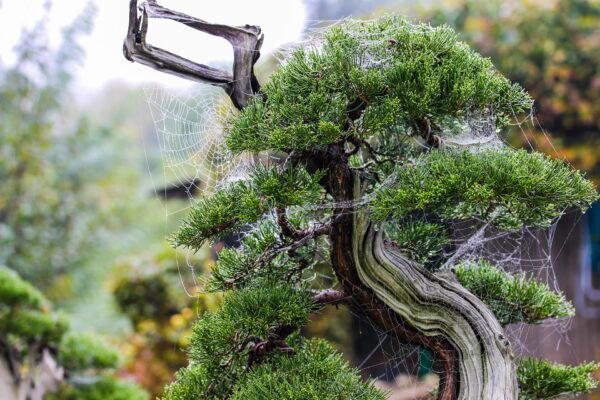
Juniperus Communis is an ideal wood for kitchen knives
It is one of the heavier woods. It’s tough and solid. When dry, it has a strong staying power and remains dimensionally stable.
The wood is characterized by a high, natural durability. The ideal handle material. All of these properties are suitable for use in the kitchen.
Grain, structure and smell. A top-class wood for the kitchen in all areas. The wood has a relatively wide sapwood with a light yellowish colour. The heartwood is darker in color. Mostly yellowish to reddish brown. Typically a light violet shimmer.
Since the juniper grows very slowly, its wood is correspondingly fine-grained. The growth rings are very narrow.
The wavy course of the annual rings is characteristic of the beautiful grain. Early and late wood are very different in colour, which results in a wonderful drawing and grace of the wood.

A very special property. Fragrance in the kitchen.
What is particularly special about juniper is its long-lasting camphor and cedar-like scent.
Even after a long time in the kitchen, the knife handle still smells wonderfully fresh and pleasant.
We have many different wooden handles on TYPEMYKNIFE. Some inspire with the grain, the hardness, the moisture resistance, or the scent.
Juniperus combines all of these advantages in one blade.
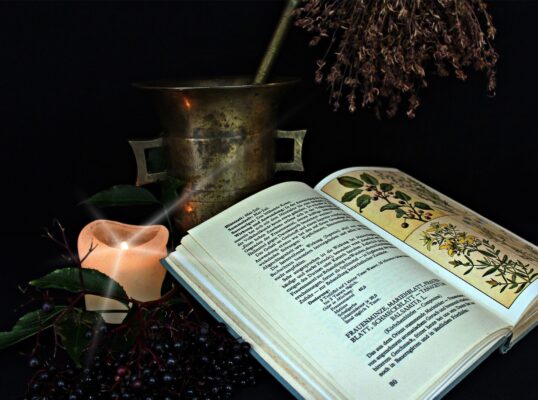
History, medicine, marvel, all combined in one kitchen knife handle.
Juniperus communis is a plant that is not straight, but crooked and twisted trying to resist wind and cold. That’s why it’s not good for lumber.
All the better. It is an ideal wood for smaller everyday or artistic products. A lot of turning and carving work is done in this wood. Known for this are whip handles, inlays, combs, walking sticks, luxury furniture and much more.
Because this wood is very waterproof, even drinking vessels were made from it. Thanks to its dimensional accuracy and hardness, it was in demand for piano hammers in instrument making.
Many reasons to discover one of the best handle materials for kitchen knives.
Stories about folk medicine, pharmacy, belief and superstition slumber in the kitchen knife.
Healing oil was extracted from the wood as early as the Middle Ages. It is possible that our Stone Age ancestors massaged cold joints with it. However, this has not been handed down in writing. It is widely known as a remedy for rheumatic ailments.
A medicinal product is extracted from the root wood, the lignum juniper, which unfolds its effect as a sweat and diuretic.
The German sandarak, popularly known as fake incense , is a resin obtained from the wood. The wonderful, ethereal scent of juniper is concentrated in this resin.
A special substance for rub-in oils, inhalants and bath additives. From a very old tradition Juniper is planted as a typical evergreen on and around cemeteries. With its scent and evergreen branches, it was believed to ward off demons.
During the plague, it was assumed that the juniper could drive away the evil. Another superstition was that Juniperus cured the diseases of old age, thereby keeping death at bay. Hence the origin of the name Wach-holter, which can come from the Old High German wechalter.
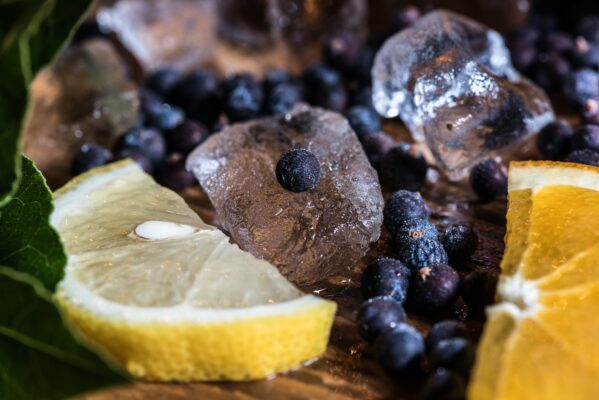
Berosh, a wood not only for kitchen knives that is already mentioned in the Bible.
Juniper belongs to the cypress woods. These were common in the Middle East and Africa long ago.
This tree is mentioned in more than thirty places in the Bible under the name of Berosh. In ancient Egypt, the wood was used for sarcophaguses and luxury furniture.
Chests and cabinets have been made from juniperus since time immemorial. A key selling point: the cedar smell repels moths. In Africa, the termites and fungus and mold in general.
Juniperus Virginia, which originated in the USA, is still used today to make colored pencils and pencils.
Where we all find the flavor of Juniperus is in the shavings for smoking fish and meat.
And drunk worldwide, distilled, as gin.
Legendary juniper schnapps, a very special distillate
Gin, or Genever back then, was first distilled by the Hanau doctor Francisscus Sylvius in the 17th century. The basis was molasses, juniper berries and coriander. William the Third, governor of the Netherlands, became King of England in 1989. He brought the now world-renowned drink to England.
He promoted the production of genever domestically through tax exemption. This increased production and genever became gin. 1769 presented Gordon. Co a triple distilled gin of high quality.
It quickly became very popular with members of the British Navy and spread to the lower classes of society. Gin consumption took over.
With taxes and quality controls one tried to become this master. Now that not only the quality increased, but also the price and taste, it became a drink of the upper class.
This is how the more expensive, quadruple distilled London Dry Gin developed. Even though a slightly sweetened gin came into fashion in the 19th century, London Dry Gin has set a lasting quality standard.
Not only excellent kitchen knives come from the Ostalb region, but also a real great gin.
No wonder, because the juniper grows everywhere on steep mountain meadows that are still traditionally kept free from sheep.
The climate on the Swabian Alb is unique, between lovely and very rough. The Juniperus berries develop a very unique aroma. The Betz distillery from Waldstetten in Swabia takes advantage of this. High-quality distillates have been distilled here for generations.
The berries grow at an altitude of over seven hundred meters on the windswept ridge of the Kalten Feld. Absolutely organic, without anything. His top product is also called Betz bio, Cold Field Gin Berry.
Unusual for the Swabian Alb, in addition to excellent gin, a great whiskey is also distilled here. The long storage time in barrels of port wine or rum from Jamaica gives the whiskey a very special aroma.
TYPEMYKNIFE has two excellent juniper knife series in its range.
By Chambriard Le Thiers from France, the Grand Gourmet series.
The extraordinarily long, perfectly shaped bolster and the ergonomic handle give the series an outstanding design and uniqueness. A unique piece of perfect craftsmanship from the capital of French knife making in Auvergne.
From the French knife manufacturer Goyon Chazeau the wonderful series Le Thiers.
Here the handle scales made of the same wood are fixed with two stainless steel rivets and seamlessly close the bolster. The wood grain of each knife is different, giving it its unique character.
The knives in the Le Thiers series by Goyon Chazeau are perfectly balanced and fantastic to hold. Goyon Chazeau knives are appealing tools for discerning connoisseurs.

